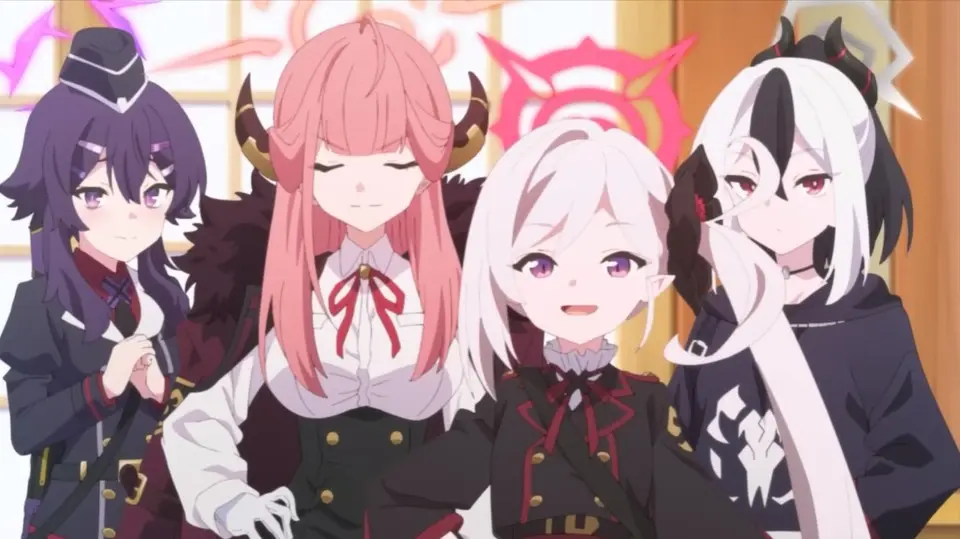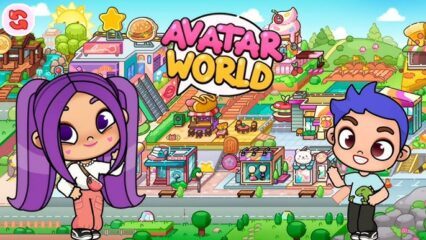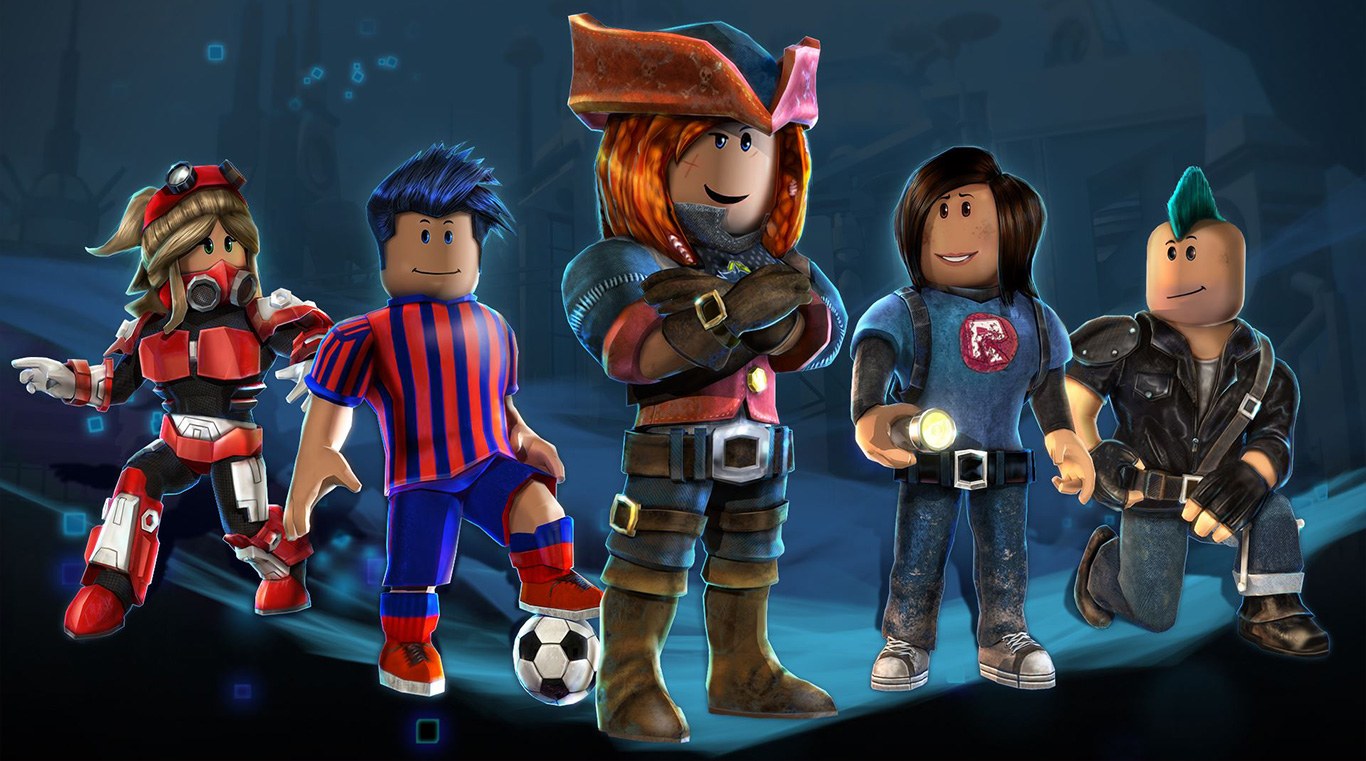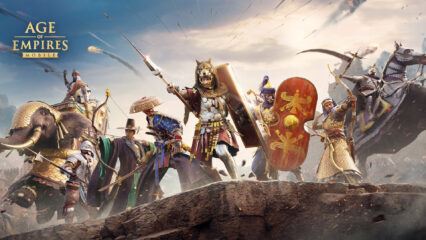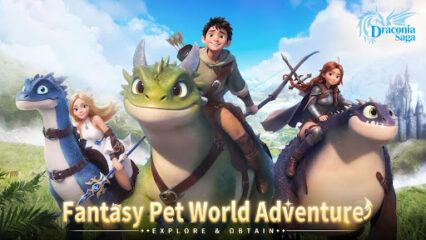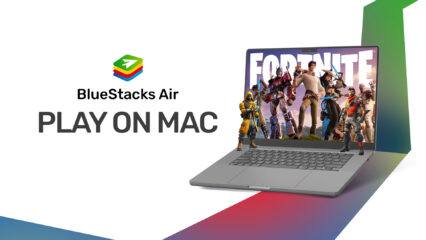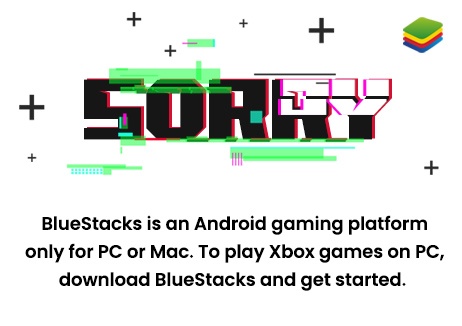Top 5 Android Games Like Animal Crossing
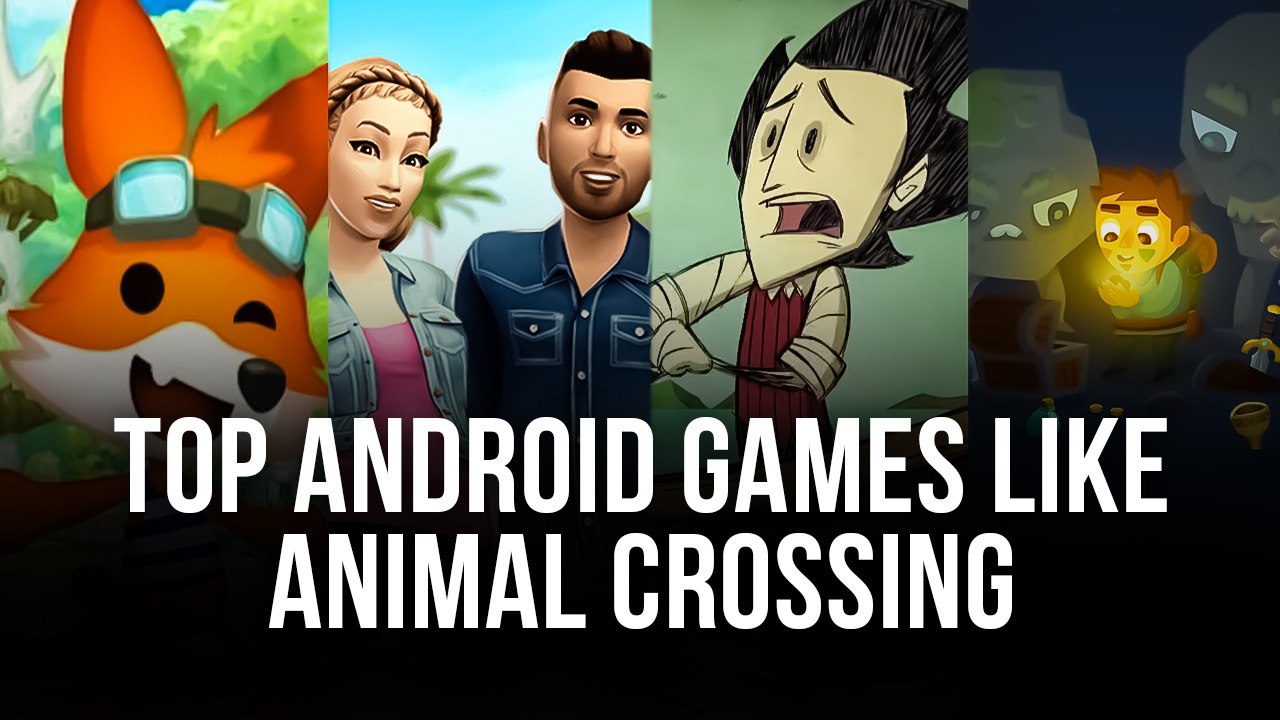
A game that has seen a surge in popularity during the last year, due to the COVID-19 pandemic and the lockdown that followed, Animal Crossing is Nintendo’s social simulation video game that was originally released in 2001 under the name Animal Forest, and then re-released in 2020 under the name Animal Crossing: New Horizons. One of the primary reasons for the game’s popularity, many critics suggest, is because of how calming it can be to play Animal Crossing. In times when a sense of calm is becoming more and more difficult to attain, playing a video game that transports you into another world, and allows you to exist in this world in real-time, communicating and interacting with characters, and building a home in this world, has helped a lot of people cope with the miseries of the pandemic.
Originally released for Nintendo devices such as the Nintendo Switch, Nintendo DS, and Nintendo 3DS, Animal Crossing has now had 3 different spin-offs, including one for mobile, called Animal Crossing: Pocket Camp. Famous for its open-ended gameplay and real-time passage of time, Animal Crossing: Pocket Camp retains both these important features, along with several others that have made the game so popular. Living in a village that has talking animals as its population, the user plays a human character that lives in this village along with the animals. Although there is no main objective for the game, per se, Animal Crossing lets you build an entire life in this village, from talking to villagers to finding a source of income, building a house to collecting objects to fill up said house. Socializing with the characters of the game is the most important aspect of the game, and it doesn’t have much of a competition system that lets you go up against other players. Instead, the game encourages you to explore the world at your own pace, customize your character and their home to your liking, and delve into different aspects of the Animal Crossing world.
In this article, we’ll be looking at five Android games that are akin to Animal Crossing in different aspects and describing what the similarities and differences are.
1. Happy Street (Free)
Limebolt’s Happy Street is the first game on our list of the best Android games like Animal Crossing. Released in 2012, Happy Street is a simple building game, similar to Animal Crossing, in which the user must control an entire street, and make sure that its inhabitants have homes, a source of income, and other such things. Although the similarities between the two games – Happy Street and Animal Crossing – are noticeable, the former doesn’t outright copy the latter, instead, taking inspiration from its cutesy, homely aesthetic, the talkative neighbors, and the open-ended gameplay. One big difference between the two games, however, is that Happy Street allows you to take a lot more control of your character along with the other characters with whom you interact and the street itself. Although users did have some control in this aspect with Animal Crossing, Happy Street allows you to level up your street and add or replace items such as homes, shops, etc. One drawback to this aspect of the game, though, is that you will need to wait a while to make such changes since leveling up the street and village takes a while.
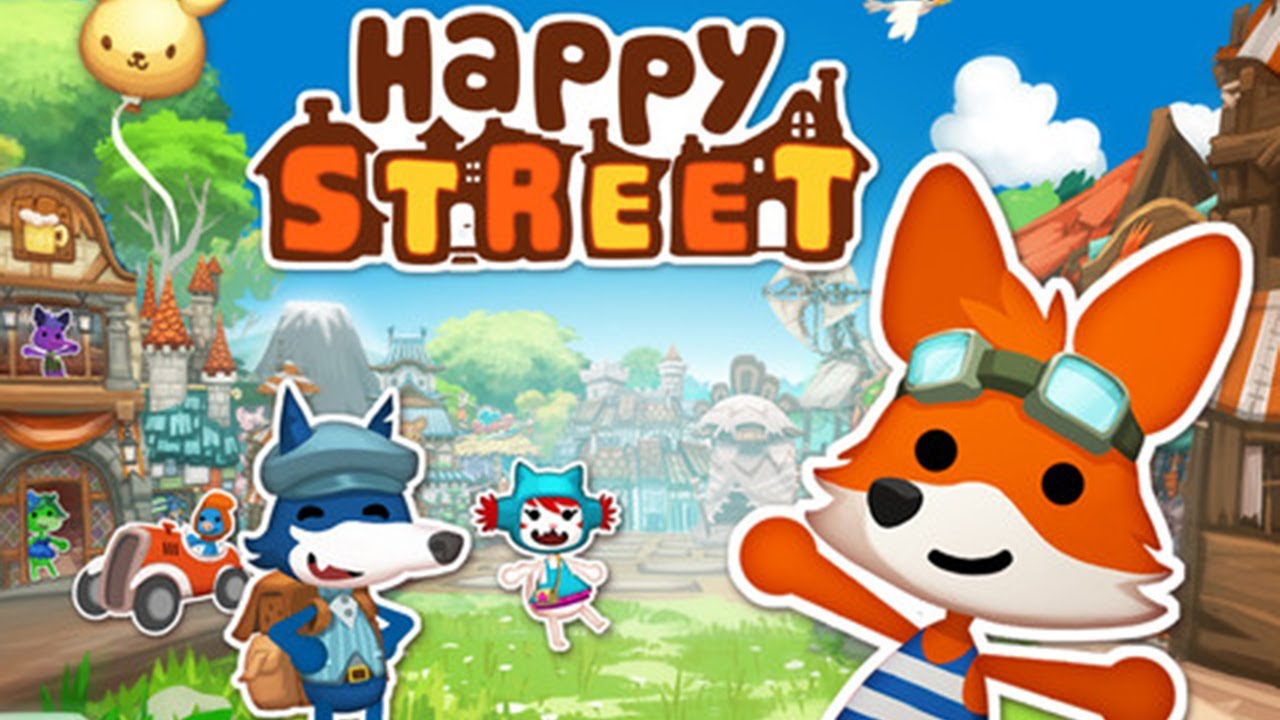
The game functions in 2D, with the street animated on a grassy plain, and the characters are all unique in the way they look and interact with the user. The character design in this game is immaculate, and every new character you encounter feels like their own person and not a copy of a character from some other game you’ve already played. They all have their own unique habits, such as Zoe, the cat, who is curiously obsessed with bird dropping, and Billy, who is always on his skateboard. The graphics are bright and pleasing to look at, and since every item and every character is unique in their design, as mentioned, you never tire of playing the game, even if the goals you need to accomplish may sometimes be repetitive. Speaking of goals, the game is great fun to play in both short and long spurts of time. While there are bigger accomplishments and goals that you can play towards, the minor interactions and gameplay are what make the game so inviting. There are two different in-game currencies that you can earn, Gold and Flooz. The former is earned when inhabitants of your village go about their day and spend money on everyday transactions, and the latter is earned by the user completing mini-quests and challenges. Building houses costs Flooz, and it can be considered the supreme currency, which can also be bought using in-game transactions if you so wish. Another great aspect of the game is that it doesn’t pester you to make in-game transactions like many other freemium games do. Neither is the game pay-to-play; of course, spending real money to buy Flooz or Gold will make your life easier, but it is exactly the part of the game where you work hard to earn Flooz and Gold that makes the game so exciting and fun to play.
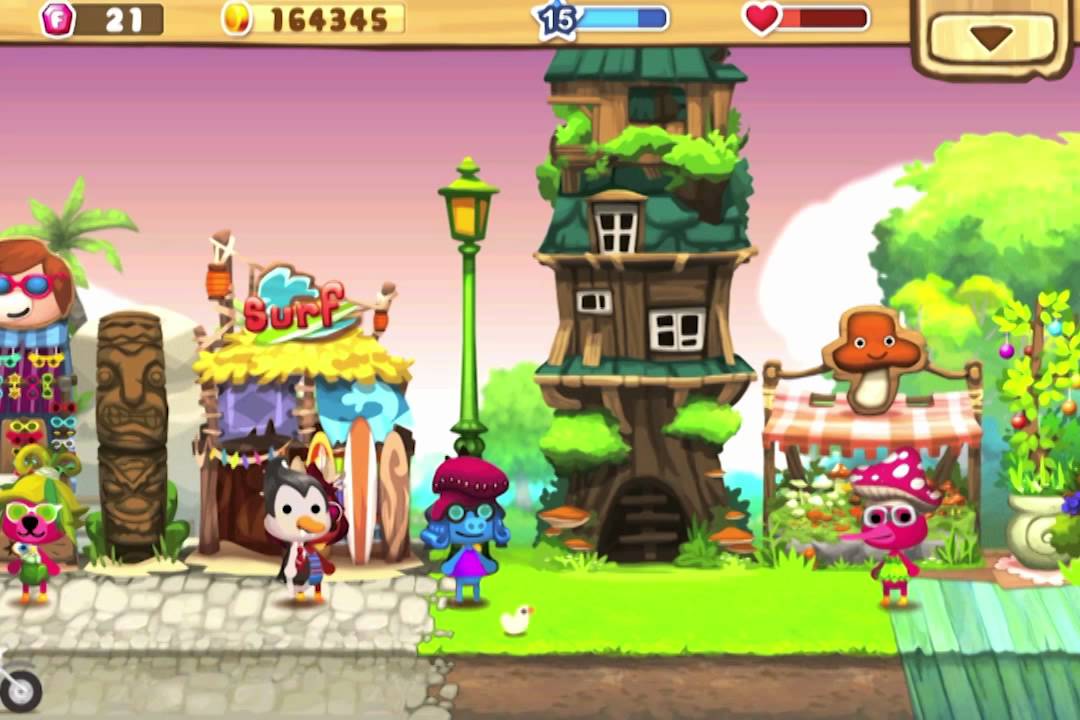
With over one million downloads, Happy Street is rated 4.5 out of 5 stars on Google Play Store.
2. The Sims Mobile (Free)
One of the reasons Animal Crossing became as popular as it did is because of how easy it felt to play the game. In some ways, playing Animal Crossing doesn’t feel like playing a game at all; instead, it feels like you’re interacting with real people in the game and that they are slowly becoming more and more intertwined into your life and your everyday actions. Another game that does this really well is The Sims Mobile. Published by Electronic Arts, or EA for short, and released in 2018, The Sims Mobile is the newest addition to the multitude of Sims games available for mobile. Mirroring the PC version of the game better than any of the previous mobile releases, The Sims Mobile is predictable in the best way possible, bringing to the table all the aspects of the franchise that fans have come to adore over the years. Much like other Sims games, The Sims Mobile allows you to customize every aspect of your character to your liking, from their gender and sexuality, to how they look and what they do for a living. This sort of freedom to create a character and customize it to one’s heart’s content is also another facet of the game that ties it to Animal Crossing.
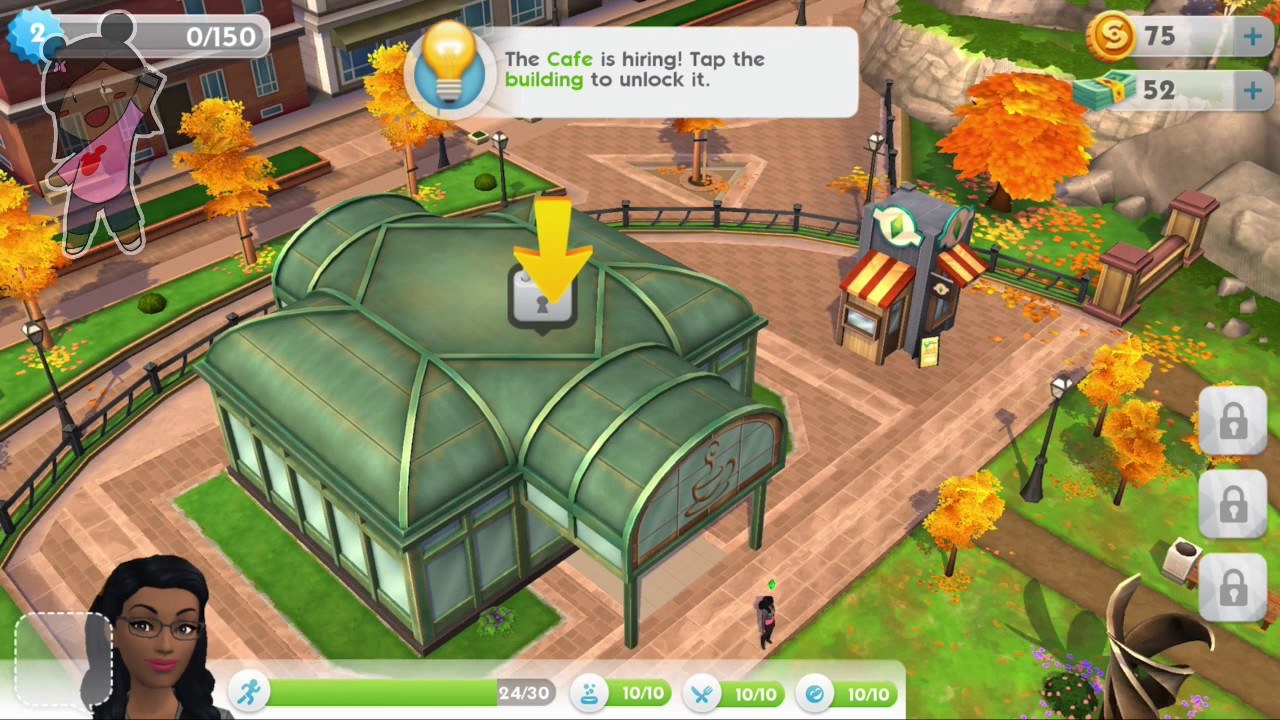
Another similar facet is the use of real-time in both games. It takes between 1 to 6 hours to finish a task in The Sims Mobile. These tasks can be anything, from tasks related to your career and hobbies to interacting with other Sims in a social setting. While some users have expressed discontent with how long it takes to finish said tasks, the time it takes to finish these tasks lends the game a sense of realness as if The Sims Mobile exists in a world parallel to ours. Plus, if you’d like the time to go by faster, you always have the option of completing other tasks related to the main task. This, however, costs energy, which replenishes on its own after a stipulated period, or can be bought using real money.
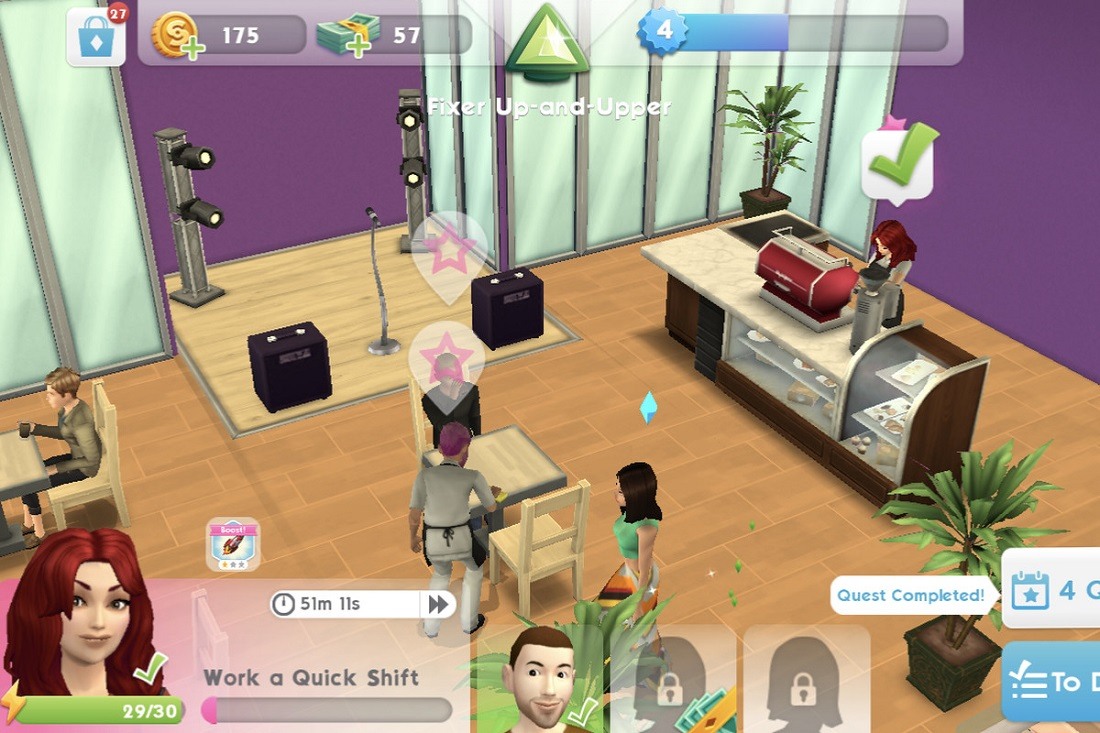
The game’s multiplayer elements make the game a lot more fun. From interacting with NPCs which leads to unlocking of storylines to hosting parties which other users can attend, the multiplayer aspects of The Sims Mobile make the game a lot more social, building a sense of community between users and ensuring that you are never bored when playing the game. The Sims Mobile is perfect for users who want to build a world and occasionally open up the game to make changes, add or subtract things, and build their character’s world according to their liking. It is also great for those who want to play for longer hours and can afford to pay for extra energy when they run out of it.
With over fifty million downloads, The Sims Mobile is rated 4.1 out of 5 stars on Google Play Store.
3. Seabeard (Free)
Hand Circus’ Seabeard is a 2014 adventure RPG release that still plays just as well as it did seven years ago, upon its release. The titular character of the game, Seabeard, is one of the greatest pirates the world has ever seen, and under his leadership and expertise, all other pirate groups, even those who don’t necessarily like each other, come together to form the great city of Accordia. However, an attack from the sea monster Colosso leaves Accordia in ruins, and the day of the attack is the last anyone has ever seen of Seabeard. This backstory alone is enough to get most players hooked, but if you’re not yet sold, there is a lot more that this game offers that users can enjoy.
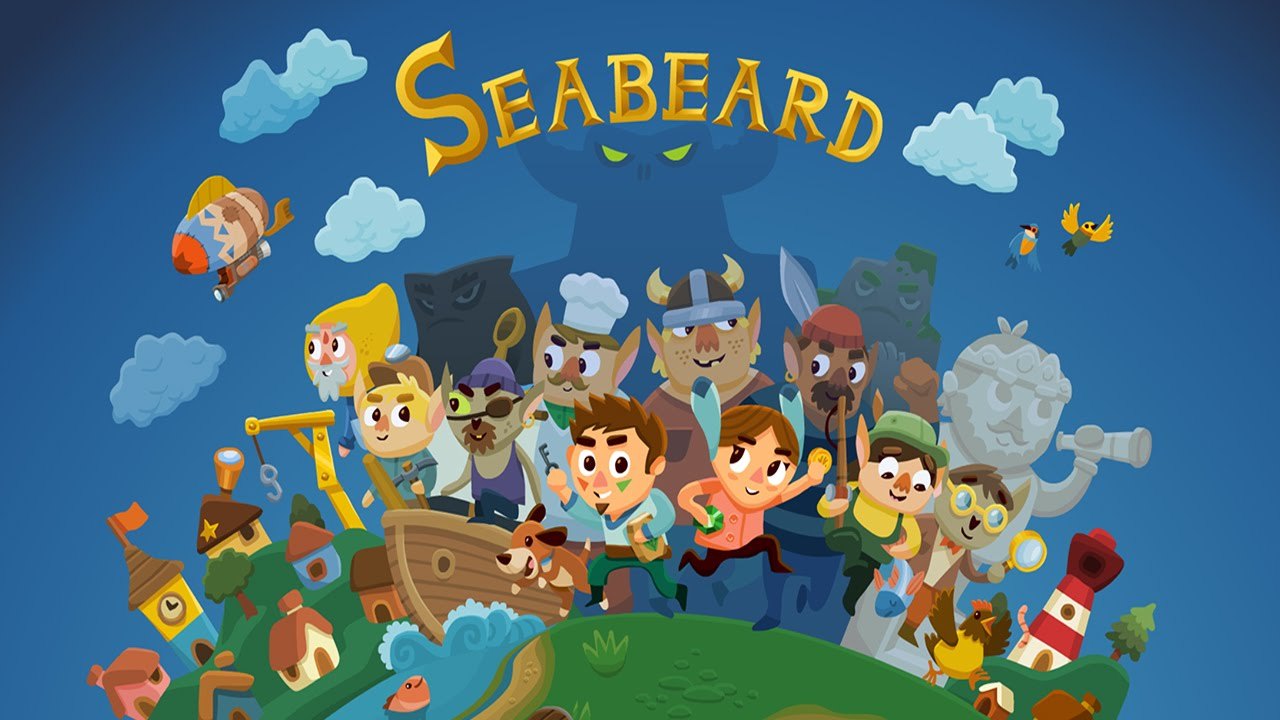
The user plays the role of Seabeard’s grandchild, the only living descendent the great pirate has left, and it is up to the user to restore Accordia to what it once used to be, bringing it back from the ruins it was left in after Colosso’s attack.
Akin to Animal Crossing, the user plays a role in the building of the city, demarcating where houses and shops will be built, etc. In Seabeard, however, the user plays a much larger role in the rebuilding of Accordia than was possible on Animal Crossing. Not only do you interact with NPCs in the game and customize your character – both doable on Animal Crossing – but you also play a crucial role in the rebuilding of the economy of Accordia, hiring Anglers to fish in the sea and then selling that fish in the market, or hiring swordsmen to venture into unexplored territories, such as caves, to hunt for treasure and also to slay the monsters you find in such unexplored areas, also selling the monster parts you collect after killing such beasts.
Mini-games also play a crucial role in Seabeard. The game has crafting stations that allow you to collect items such as wood and food and craft them into new items that will be useful in your endeavors to rebuild your city. Sailing mini-games lend you plenty of opportunities to collect such items. Along with this, finishing a mini-game, especially one that involves sailing, such as Dangerous Waters, in which one must avoid certain areas of the lane in which one is sailing, offers you gold medals along with various other rewards, both of which can be useful later in the game. One such item is Dynamite, which can be used to remove rocks from a piece of land on which you may want to construct a building.
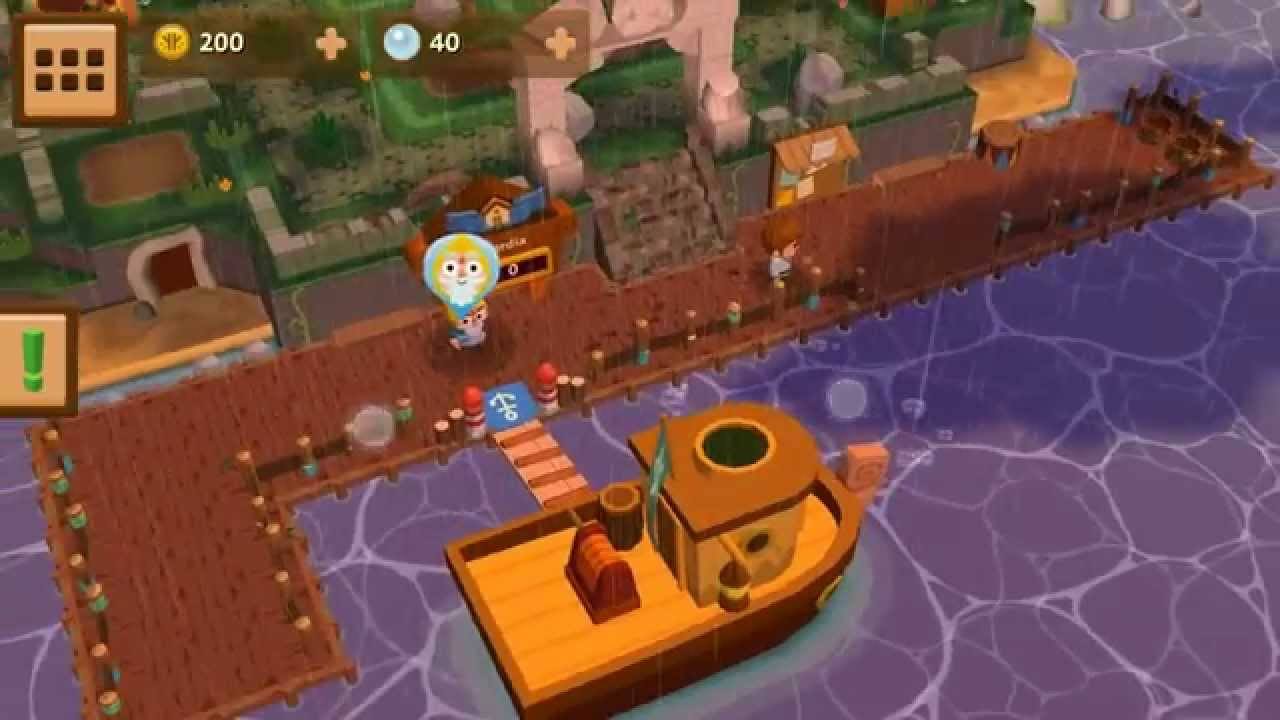
Seabeard is also very inviting due to its graphics and character design, almost as much as its gameplay. Since customization is also a big aspect of the game, and one that has been done very well by the developers, you have the opportunity to construct your character in whichever way you like, along with customizing other characters such as craftsmen, and also the buildings which you construct. You can equip whatever furniture you like, and you can also change the interior and exterior of the boat upon which you sail.
With over one million downloads, Seabeard is rated 4.3 out of 5 stars on Google Play Store.
4. Harvest Town (Free)
Avid Gamers’ Harvest Town is a farming simulation game that is heavily inspired by another such game by the name of Stardew Valley. However, the design and structure of the game differ from the latter title, and Harvest Town carves out its own space in the village-simulator market of games. The game also has elements of time-travel woven into the storyline which makes for some exciting gameplay and encourages engagement on the part of the user.
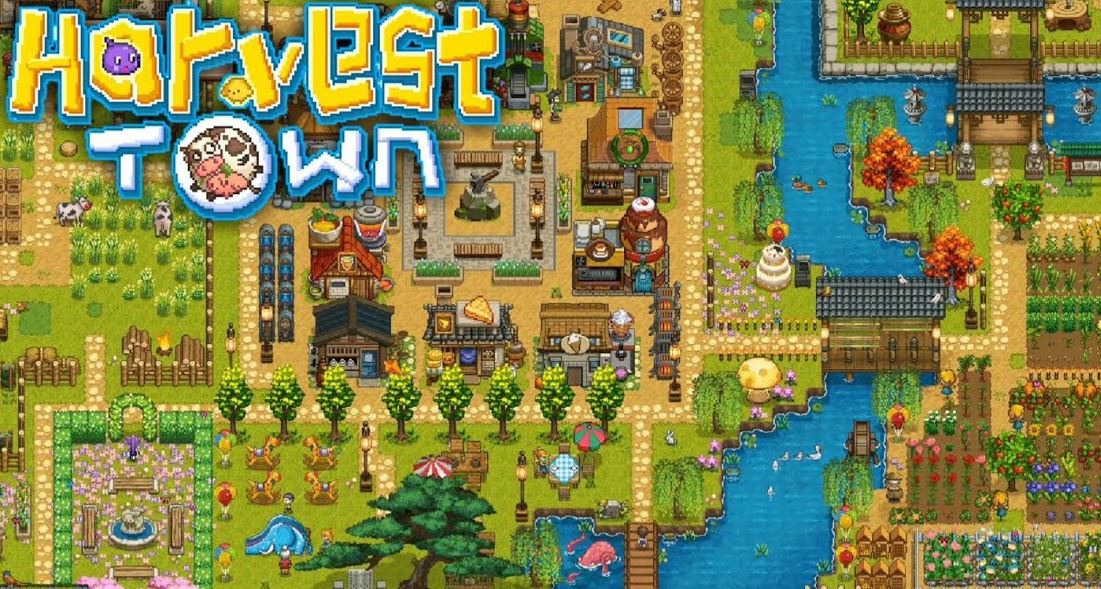
The game follows a character who is tired of city life after having lived in cities for most of their adulthood. However, by some strange occurrence, they are given the choice to go back in time to their childhood and to the village in which they spent most of their life as a child. Disillusioned with the hustle and bustle of the city, the character chooses to go back in time and follow their dream of building a life in the rural countryside. The first and most important step in accomplishing this is fixing up the abandoned manor which once used to be full of life when they were a child. Fixing up this manor is also your main goal in the game, and leveling up the manor also unlocks various features and provides you with exciting rewards every time you make an upgrade.
Another essential component of the game is farming, since Harvest Town is, as the name might suggest, a farming simulation game. The game functions on the basis of skills and energy, and there are currently 8 different skills for you to pick up and master, including fishing, farming, logging, breeding, etc. These skills require certain items, such as fishing, which requires a fishing rod, and it is only through the use of such items that you can make progress with your skills. These skills also require energy, known as Vitality, which is finite and runs out once you use it for multiple skills. Vitality replenishes itself, however, in real-time, but if you’d like to continue with your farming or fishing adventures without waiting for Vitality to replenish, you can always make use of the Vitality Drink which enriches your Vitality bar. These drinks can also be bought using in-game purchases.

The game has pixelated graphics and a large map for you to explore. It is precisely this pixelated graphic style that draws comparisons to Stardew Valley, but while Harvest Town is inspired by Stardew Valley to some extent, it brings a lot of new and exciting components to the table that any RPG fan would enjoy.
With over one million downloads, Harvest Town is rated 4.4 out of 5 stars on Google Play Store.
5. Don’t Starve: Shipwrecked ($4.99)
Klei Entertainment’s Don’t Starve: Shipwrecked is the second iteration of the hugely popular survival game, Don’t Starve. Out of all of the games covered on this list, Don’t Starve: Shipwrecked is the most different, and also the most unforgiving of all the games mentioned. With other simulation RPGs, developers look to offer the users a good time of peaceful gaming in which the user can build a city or a street and look after their character’s farm or cattle. Don’t Starve: Shipwrecked, however, is a completely different ballgame. One thing you must know before venturing into this game is that you will die. Several times. Over and over. It can and will be frustrating, but it is exactly this uncompromising and unforgiving style of gameplay that makes this game so rewarding to play once you finally get over the hurdles you have been trying to overcome for so long.
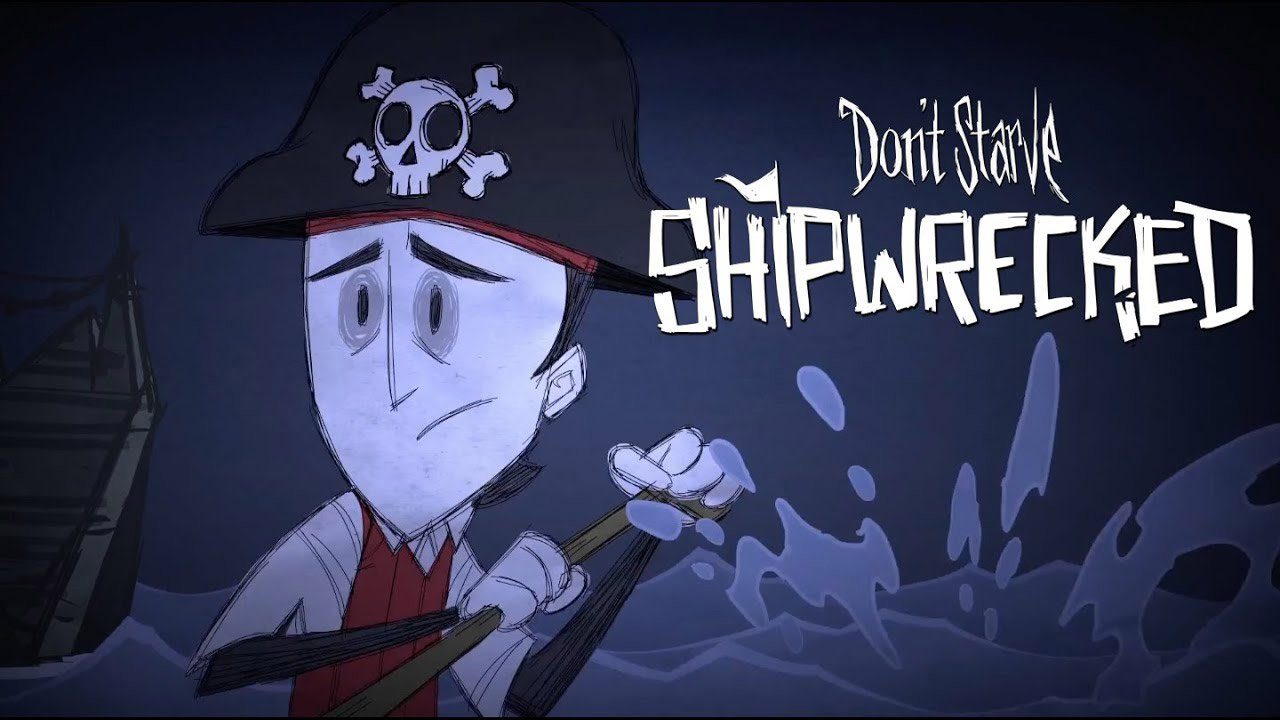
Don’t Starve: Shipwrecked takes all the major characters from the original Don’t Starve and transports them to an island setting. Wilson, the protagonist of Don’t Starve, is now on a ship and must learn to survive for as long as he can by using the resources available to him. One of the major differences between the two games is the logistical and tactical shift that comes into play due to the game now being set in a tropical setting. In the original Don’t Starve, users had to figure out how to survive off of the land, but this was still simple enough to do since it was one giant landmass that Wilson was stuck on, but now that the landmasses are smaller islands that run out of resources quicker, transportation and access to resources also becomes an added pressure on the user, which leads to even more deaths. There is, however, a slider that the user can control which increases or decreases the frequency of Wilson finding resources on the island he is currently on. This also lets the user set the difficulty according to their preference, making for a more enjoyable gaming experience.
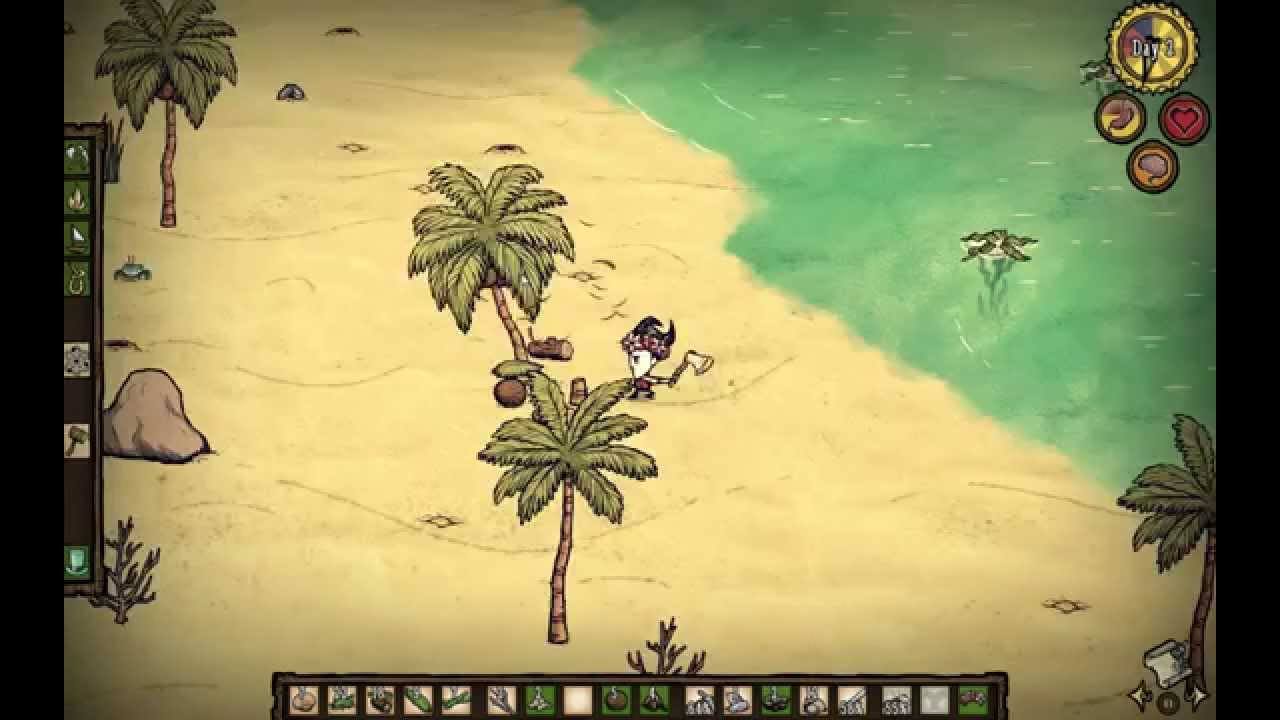
Don’t Starve: Shipwrecked may not seem like Animal Crossing in any way, shape, or form, but both games rely on finding resources and crafting elements to create items that will, later on, be useful to the player. In this way, one can imagine Don’t Starve: Shipwrecked to be a more hardcore version of Animal Crossing, with dreary graphics, ruthless gameplay, and a lot of frustrating plays which eventually pay off and lead to a rewarding gaming experience.
With over fifty-thousand downloads, Don’t Starve: Shipwrecked is rated 4.2 out of 5 stars on Google Play Store.

